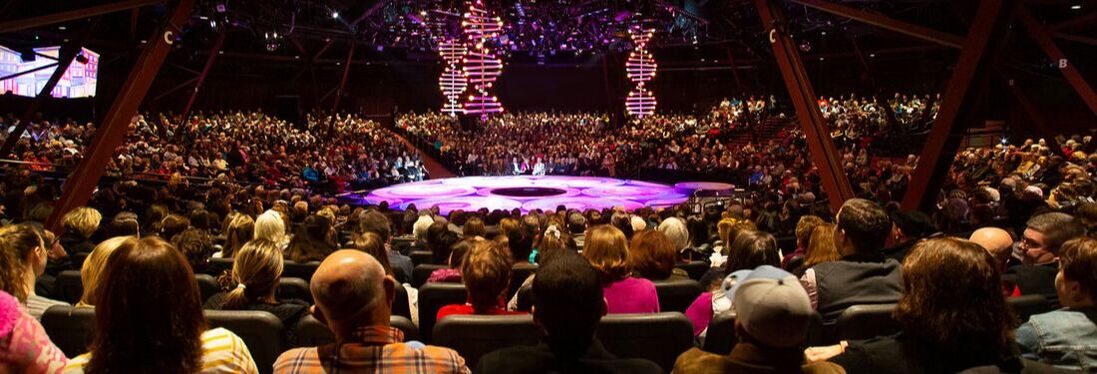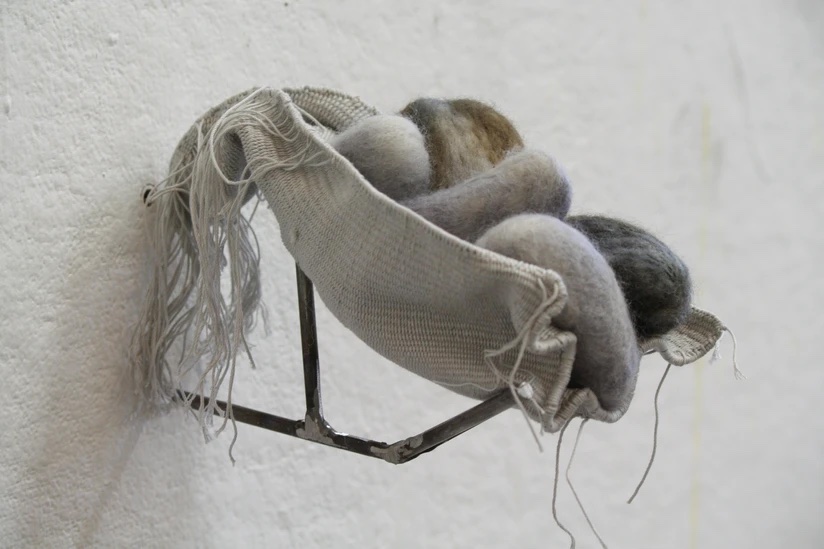

Joey Phoenix (JP) sat down with Soap and Rope Theatre Company co-founder Jill Rogati (JR) to talk about Commedia dell’Arte, Soap and Rope, and the Art Incubator at the Larcom Theatre. The Art Incubator is a new opportunity Soap and Rope Theatre Company has created to provide a space for artists and performers to share the things they’ve created and the things they’ve been working on and to get feedback on those performances and pieces.
To sign up for the next Art Incubator on January 10th, 2019, email Soap and Rope Theatre Company at soapandropetheatre@gmail.com.
JP: Tell me about you and about what you do.
JR: I went to Wenham Highschool, and then to Gordon right down the street for college, and then went to London to get my Master’s in physical theater, like collaborative physical theatre, which should you want to know sort of what that means…
JP: Yes, I do.
JR: [Laughs] It’s a school that teaches a physical approach to theatre as opposed to “let’s think about it a lot and talk about the psychology” – which is all wonderful and there’s nothing wrong with that and everyone should do that as well, but a lot of people neglect the physical side of things, so this school focuses on that and also focuses on collaboration.
The school is called LISPA (The London International School of Performing Arts), but I actually got my MFA because they worked in conjunction, at the time, with Naropa University out in Colorado.
Then I came back to Boston reluctantly because I couldn’t get a VISA to stay in Europe. I was then trying to create work that was in the same universe as what I was studying, which I found a little challenging here in America. I kept forgetting that a lot of the stuff I was doing there was not new there, and then doing it here [people] would say “Wait, what is that and how does it work?”
JP: Tell me a bit about Soap and Rope Theatre Company, particularly what makes it distinct.


JR: It was a group of performers we started with, one who I went to undergrad with, two that I went to high school with, and we all kind of found ourselves in jobs that were part time and leaving us wanting to fill the rest of our space with something or full time and not at all creative in any way. And we all have so many skills. So we said, “Let’s just try it. Let’s try to write a show from scratch and do it.” Which usually ends after two meetings of trying to talk about ideas, but oh my gosh we did it. I was so proud of us.
We ended on doing a live version of the Oregon Trail computer game that we called “You Have Died of Dysentery!”
JP: I photographed that show, it was an unbelievable experience.
JR: I’m so glad you enjoyed it!
We were just determined. It was us saying that we were going to meet for twice a week, sit down and write, and/or once it came time, rehearse. If we’re going to spend our free time doing this, we better enjoy ourselves. It didn’t mean that we didn’t hit a lot of roadblocks or that there weren’t challenges, but they were all challenges that we enjoyed solving. There’s always going to be moments of being tired or not wanting to go to rehearsal, but once we were there we kept the goal of “If we’re not having fun, we need to re-examine this.”
So a show came out of it that I think was just fun, and I was surprised at how easy it was to market. I’ve never had such an easy job marketing a show, and I am not a marketer, but I think it just struck a nostalgic nerve in people. Our audiences just got excited and word of mouth helped a lot. It was just a fun little romp of three women going on the Oregon Trail, and then we had one guy – David Babcock – who played all the other roles, including the Buffalo.


That’s how we started, and of course when you write a show or start a show, in order to pitch it to the venues – because we took it to many venues – you have to be a company. You have to write your company name and your mission. It started with a show and by necessity we had to create a company.
After that I was hired to do a series of Commedia shows. Sleepless in Siena was the first one, Scapin this last year, and there was one in between called the Imaginary Invalid which was Moliere as well.
Not all of them had masks, but all very physical comedy, again a form I think is so familiar in Europe and here feels very new, which is kind of great. It was a little harder to sell because I think people are skeptical of what it is. But once you get people to a well done Commedia, it’s hard not to enjoy them. They just were so much fun to do. And, they were made possible by the Crane Estate, who I used to work for, who hired our company.
JP: So through all this, what brought the Art Incubator into being?
JR: That was another thing that was inspired by my time in London, and I was speaking to another woman who was in The Imaginary Invalid show that I talked about named Tori Hines, an equity actor in the area, and she and I were both talking about doing something similar.
In London there were these nights called “Scratch Nights” and anyone who was working on a piece could come and submit 10-15 minutes worth of their work and put it in front of an audience and at the end there was this moderated feedback session.
It was basically artists who had gotten past their educational setting where that’s a natural part of classes – where people and teachers are giving you feedback and you can push against that, and so I think it’s tough when suddenly you don’t have that.
If you’re in a visual art that you don’t necessarily need to have a live audience for, there’s ways to get feedback from various individuals. It’s really tough if you have a show that you’re writing or a song that you’ve written to sit down with a friend or two and perform it and ask “What do you think?” That’s tough for you and tough for the audience person who’s trying to give feedback to their dear friend, but you’re also not going to get a good sense of how your work is actually coming across.
These nights were just so smart, and a group of my classmates were doing a show that we were bringing to the Edinburgh Fringe Festival and we did two of the nights where we did 15-20 minute chunks of it. It was so helpful, and people would tell us what they saw, and we could ask questions of an audience: “Did this make sense, did it not?” And I just hadn’t seen anything like that here.


So I thought: “This is such a creative enough area.” I’ve lived in Beverly and theres a ton of artists everywhere. Same with Salem. It’s just crawling with them. So I thought, why not just give them a chance? It’s so common to graduate from your undergraduate or postgraduate and just feel totally lost and alone and think maybe Mom was right and I should’ve done nursing.
I just wanted to give a space for people to do exactly that, to bring the stuff their working on – which takes a lot of guts.
So I started a relationship with the Larcom Theatre and with Donnie and I just adore that theatre, and I want more than anything for it to succeed. There’s all these little charming artistic communities all over the place and it’s a challenge to create another one, but it’s such a beautiful space and I think there’s a little niche for it that other spaces don’t have.
When I got to know Donnie and the space I just wanted to dedicate my energy to figuring out what else the space could provide that isn’t really anywhere else. I had this idea that it was a need and he had a great space and needed ideas to fill it, and he was lovely and so open to the idea. And we’re not doing it on a primetime night, so for [the theatre] it works out.
We started on Tuesdays and then switched to Thursdays. It’s what I hoped it would be. I also care so much about feedback, so for me it fills that personal need.
JP: So tell me about the kinds of performers that you’ve seen come through the theatre for the Incubator.
JR: We take any kind of performer that needs an audience: musicians and singer songwriters; we’ve had a few actors who just need to do audition pieces, so maybe a couple of monologues just to get the nerves out before an audition; plays that people are working on to make sure a scene is working; writers, lots of poets for sure who want their poetry to be heard out loud rather than just read quietly; and stand up comedians.
I’d love for there to be even more. I showed a puppet for one of them, I got to make a cow for a high school production that walked as you walked.
JP: What’s the format for the evening? If a performer or an audience member were to go, what would that look like for them?
JR: The show starts at 7:00 but we want people to come a little bit early. There’s beer and wine, so we want people to feel like it’s an event they can come and enjoy themselves at and the audience, I want them to feel like they’re contributing to artists’ work. It’s a $5 ticket.
Then there’s someone hosting the night and each performer will be introduced before they go up and do their 5-20 minute (depending on what their doing) performance and then after about an hour and a half of that, we have a little bit of a break.
All of the performers are required to stay for the feedback at the end and we really encourage the audience to stay, and we all come up on the stage and sit in a circle. We go around one at a time, and I usually moderate that to make sure that for the artists the feedback stays useful, because I think we all need to learn a little bit how to give feedback in a useful way.
Also I coach the artists ahead of time to think about what they really want to know about their work, to come prepared to ask specific questions.
[The Feedback] is my favorite part, and I always encourage the audience to stick around for it. I’ve also never had feedback from the artists saying they didn’t find it useful, and maybe they’re just being generous, but I get lots of people wanting to come back. It’s kind of like pulling teeth trying to get artists to get their work out there, I really have to coax people sometimes, but once they’ve done it they’ll want to do it again.
I’m hoping that more people that I don’t know are submitting.
JP: Can anyone perform?
JR: Yeah, so they just submit to soapandropetheatre@gmail.com – and can find more submission information via the submission page on our website.
We’re not the highest tech thing, it’s definitely works in progress that we’re looking for. So there are some people who have to adjust their expectations as a result of that, but most people get it.
The next Art Incubator is Thursday January 10th and Soap and Rope Theatre company is still accepting submissions. So if you are interested in performing, reach out right away.
About Soap and Rope Theatre Company: We create new things out of old things, or out of nothing. Our pieces reflect a collaborative spirit between company members and audience. Soap & Rope performances often include, but are not limited to, physical theatre, devising, and original writing.
About the Larcom Theatre: The Larcom Theatre is a beautiful and historic multipurpose theatre in Downtown Beverly. Located on a side street off of Cabot Street (across from City Hall), the Larcom Theatre is often referred to as “North Shore’s hidden gem.”


Joey Phoenix is a performance artist, pet photographer, and the Managing Editor of Creative North Shore. Follow them on Twitter @jphoenixmedia. If you have an idea for a story, feature, or pictures of adorable llamas, feel free to send them a message at joey@jphoenixmedia.com







